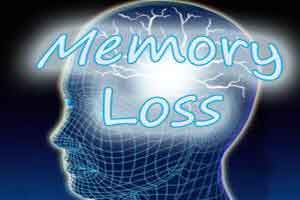- Home
- Editorial
- News
- Practice Guidelines
- Anesthesiology Guidelines
- Cancer Guidelines
- Cardiac Sciences Guidelines
- Critical Care Guidelines
- Dentistry Guidelines
- Dermatology Guidelines
- Diabetes and Endo Guidelines
- Diagnostics Guidelines
- ENT Guidelines
- Featured Practice Guidelines
- Gastroenterology Guidelines
- Geriatrics Guidelines
- Medicine Guidelines
- Nephrology Guidelines
- Neurosciences Guidelines
- Obs and Gynae Guidelines
- Ophthalmology Guidelines
- Orthopaedics Guidelines
- Paediatrics Guidelines
- Psychiatry Guidelines
- Pulmonology Guidelines
- Radiology Guidelines
- Surgery Guidelines
- Urology Guidelines
Increased calcium in specific brain cells linked to age-related memory loss

Increase in intracellulare presynaptic calcium may impair memory, finds a study.
Researchers have conducted a study to evaluate new clues into how and why cognitive functions such as memory and learning become impaired with receage and have found that a crucial factor is calcium levels in specific cells in the brain.
The study has been published in a specialist neuroscience journal.
As we get older, our memory starts to fail and it becomes harder to learn new things. It would not be unreasonable to assume that this is caused by brain cells gradually dying off but that doesn’t happen. So what causes age-related cognitive impairment?
The answer lies in synapses, the electrochemical connections between neurons that use neurotransmitter molecules to create the web of functions within the central nervous system. Professor Nick Hartell looked at whether calcium levels in the hippocampus, part of the brain necessary for learning and memory, might play a part.
Most research in this area has concentrated on post-synaptic cells – the ones which receive neurotransmitters – simply because measuring calcium levels in pre-synaptic cells is very difficult. Nick and his colleagues stepped up to the challenge, by developing a special strain of mice which express a calcium-sensing fluorescent protein within the pre-synaptic parts of their hippocampus.
The research used mazes and object recognition tests to study the cognitive functions of mice at ages of 6, 12, 18 and 24 months, and found a clear correlation between cognitive ability and pre-synaptic calcium levels. In older mice, which perform less well in the tests, the homeostatic processes that should keep intracellular calcium within limits start to falter, creating a build-up of calcium in pre-synaptic cells within the hippocampus.
Experimentally raising the level of intracellular pre-synaptic calcium in the brains of young mice altered the synaptic properties so that they behaved like those from the older mice. Most fascinating of all the results is that the reverse is also true: lowering intracellular calcium in old mouse brains rejuvenates their synapses – which obviously has enormous potential significance for age-related health issues in humans.
The paper Changes in presynaptic calcium signaling accompany age‐related deficits in hippocampal LTP and cognitive impairment was published last month in the journal Ageing Cell. Professor Hartell’s research was funded by the Biotechnology and Biological Sciences Research Council (BBSRC).

Disclaimer: This site is primarily intended for healthcare professionals. Any content/information on this website does not replace the advice of medical and/or health professionals and should not be construed as medical/diagnostic advice/endorsement or prescription. Use of this site is subject to our terms of use, privacy policy, advertisement policy. © 2020 Minerva Medical Treatment Pvt Ltd